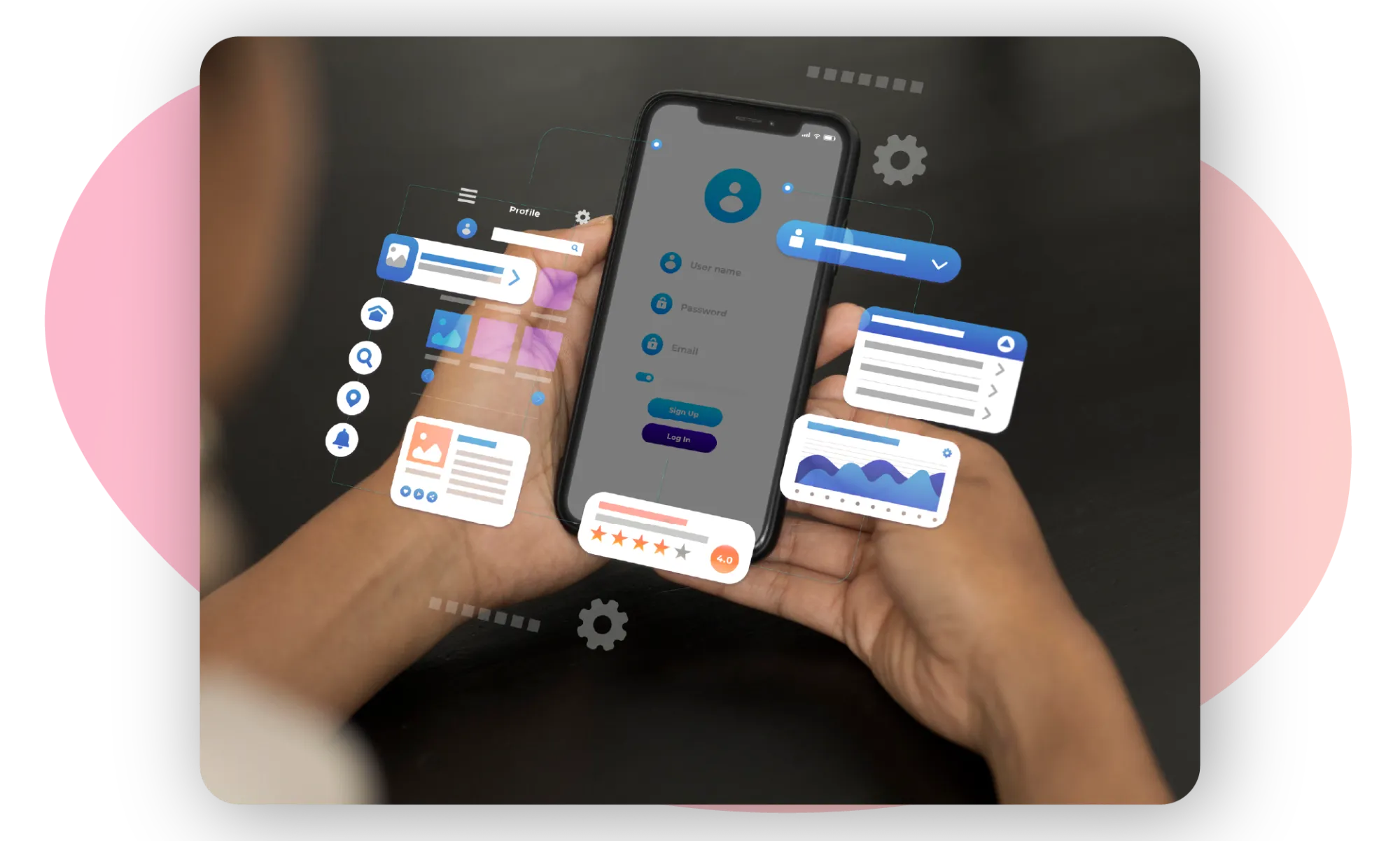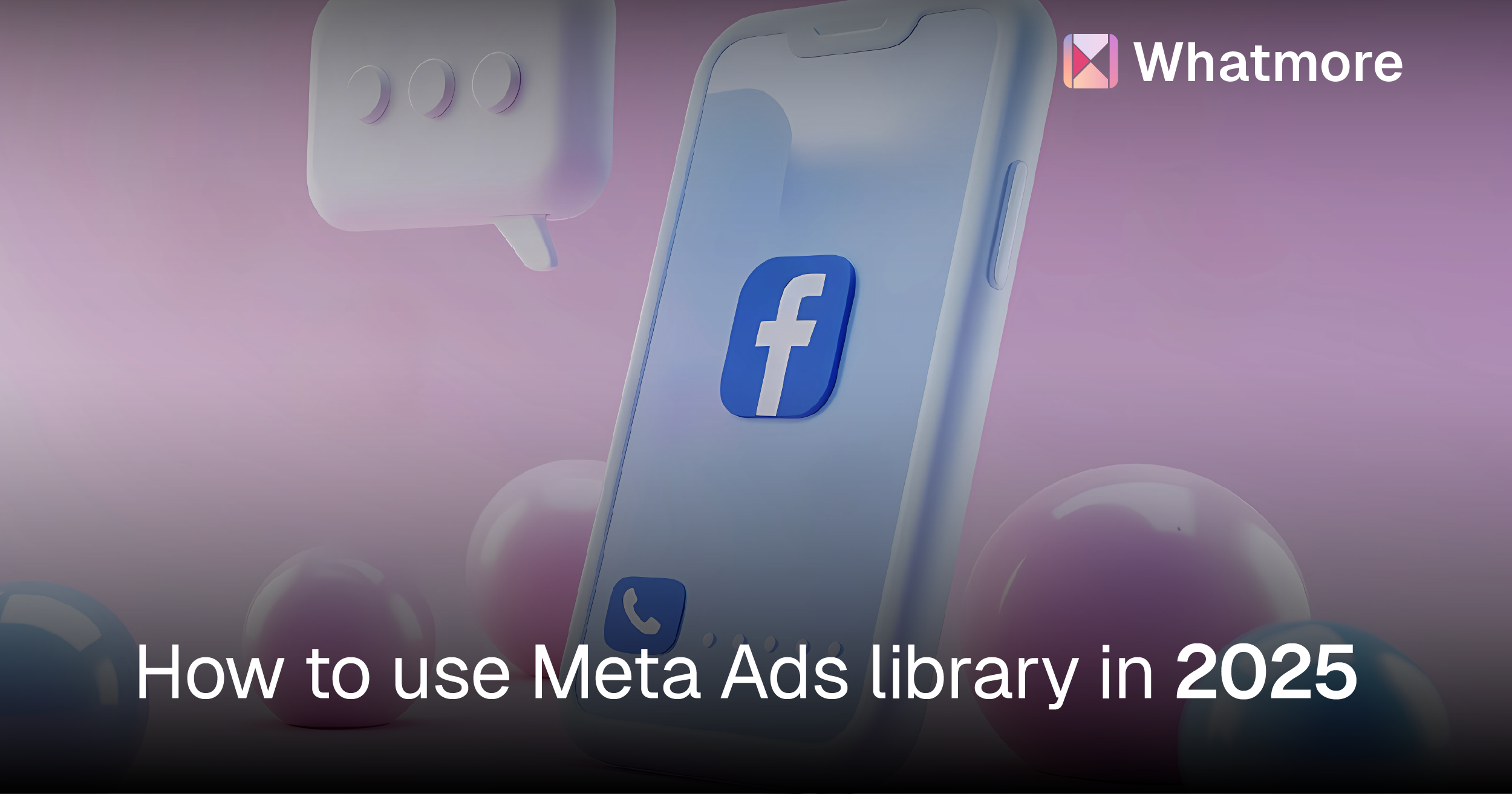The Facebook Ad Library is an important tool in the advertising world. It provides transparency and insight into ads running on Meta's platforms—Facebook, Instagram, WhatsApp, and Messenger. As digital advertising continues to change, it's crucial for marketers to understand how to use this resource effectively in 2024.
The Facebook Ad Library was created to make online advertising more understandable. It allows users to view active ad campaigns from different advertisers. This feature not only promotes transparency but also offers valuable data for improving advertising strategies.
In this blog, we will explore the key features of the Facebook Ad Library available in 2024. You'll discover how these tools can be used to enhance your advertising strategies on Meta's platforms. Whether you want to analyze competitors, find creative inspiration, or gain a better understanding of market trends, this guide will provide you with the knowledge necessary to make the most of this powerful resource.

Understanding the Facebook Ad Library
The Facebook Ad Library, also known as the Meta Ad Library, is a comprehensive archive designed to enhance transparency in advertising across Meta's platforms, including Facebook, Instagram, and Messenger. This tool allows users to explore all active ads from various advertisers, providing insights into competitors' strategies and creative approaches.
Definition and Purpose
At its core, the Facebook Ad Library is a repository of all advertisements currently running on Meta's platforms. Its primary purpose is to promote ad transparency by allowing users to view ads without needing a personal account. This openness aids marketers in understanding how different brands communicate with their audiences.
Promoting Advertising Transparency
The library plays a crucial role in ensuring ad transparency across Meta platforms. By providing access to information about ad content, spend, and targeting specifics, it helps hold advertisers accountable.
Users can examine ads related to socio-political issues or elections, gaining insights into how these campaigns are structured and targeted.
Key Features Introduced in 2024
2024 has seen several enhancements in the Facebook Ad Library:
- Enhanced Search Capabilities: Users can perform targeted searches using keywords, industry names, or advertiser names. Filters such as country, ad category, and media type (images/videos/text) refine these searches further.
- EU Transparency Features: New tools provide detailed audience breakdowns for political ads within the EU, revealing age and gender targeting specifics.
- Competitor Analysis Tools: Marketers can track competitor ads over time and extract valuable insights regarding creative elements and messaging strategies.
- Campaign Inspiration Resources: A section dedicated to successful ads allows marketers to draw inspiration from top-performing campaigns.
This combination of features underscores the Facebook Ad Library's integral role in both promoting transparency and empowering advertisers with actionable insights. Each feature represents an opportunity for businesses to refine their strategies based on real-world data and competitor analysis.
Key Features of the Facebook Ad Library in 2024
The Facebook Ad Library continues to be a vital tool for marketers and advertisers, introducing enhanced functionalities that cater to the evolving needs of advertising strategies. In 2024, several key features stand out, making it an indispensable resource for competitive analysis and campaign inspiration.
Enhanced Search Capabilities
1. Search Ads by Keyword
One of the most significant improvements is the ability to conduct targeted ad searches using specific keywords. This feature allows users to pinpoint ads based on relevant terms, industry names, product types, or advertiser names. By leveraging these search capabilities, advertisers can uncover trends and strategies employed by competitors.
2. Filter Ads by Country
The library now offers refined filtering options that enable users to narrow their searches by country. This is particularly useful for businesses aiming to understand regional advertising strategies and tailoring their campaigns accordingly.
3. Advanced Filters
Alongside keyword-based searches, the library includes advanced filters such as ad category (e.g., active/inactive), impressions by date/platform, and media type (images/videos/text). These filters empower users to customize their search queries for more precise results.
Access to EU Transparency Features
Transparency remains a cornerstone of the Facebook Ad Library's mission. In 2024, this commitment is evident through enhanced EU transparency features:
1. Audience Breakdowns for Political Advertising
Users can access detailed audience breakdowns for socio-political issue ads and election-related advertisements. These breakdowns include metrics such as age and gender targeting, providing insights into how different demographics are being reached with political messaging.
This level of transparency not only aids in understanding the reach and impact of political ads but also sets a precedent for how digital advertising should operate ethically across all Meta platforms.
Tools for Analyzing Competitor Ads
Understanding competitor strategies is crucial in gaining a competitive edge in any market. The Facebook Ad Library offers robust tools for analyzing competitor ads:
1. Creative Elements and Messaging Strategies
Users can track competitor ads over time, dissecting their creative elements—such as visuals, text, and call-to-actions—and messaging strategies. This analysis helps identify successful tactics that could be adapted or improved upon in one's campaigns.
2. Advertising Strategies
By examining trends in competitor approaches within specific industries or niches, marketers can refine their own advertising strategies to better meet market demands.
Resources for Campaign Inspiration
Finding inspiration is often the first step toward crafting impactful ad campaigns. The Facebook Ad Library serves as a treasure trove of ideas:
1. High-Performing Ads
By reviewing high-performing ads from competitors or similar brands, marketers can gather valuable insights into what resonates with audiences. This process involves analyzing which creative elements led to higher engagement rates or conversions.
2. Identify Market Gaps
Beyond inspiration, the library enables users to identify gaps in the market that they can capitalize on. Spotting areas where competitors may not be meeting consumer needs allows businesses to position themselves strategically with innovative solutions.
These resources collectively support advertisers in creating compelling ad content that stands out amidst the digital noise.

User-Friendly Interface
Ease of use is a critical aspect of any tool's effectiveness. The Facebook Ad Library boasts a user-friendly interface designed for seamless navigation:
- No Account Needed: Users can explore the library without needing a Facebook account—a testament to its accessibility.
- Intuitive Navigation: The interface simplifies the search process with clear categorization and labeling of features, ensuring that even those new to digital marketing can effectively utilize its offerings.
Regularly engaging with these tools empowers marketers to stay informed about changes in competitors' strategies or newly launched ads. By keeping abreast of these developments, advertisers maintain agility in adapting their own campaigns.
The 2024 enhancements underscore Facebook Ad Library's role as an essential resource for advertisers seeking transparency and inspiration in their campaigns across Meta platforms.
Using the Facebook Ad Library Effectively in Your Advertising Strategy
Developing Target Demographics
Understanding your audience is crucial for the success of any advertising campaign. The Facebook Ad Library provides extensive demographic insights that can help you craft a detailed picture of your target demographics. Here's how you can leverage this tool:
- Analyze Demographic Data: Use the library to explore data on age, gender, and location of audiences engaging with specific ads. This helps in identifying potential customer bases and understanding what appeals to different segments.
- Custom Audience Creation: With insights from the library, create custom audiences that mirror successful demographic profiles. Tailor your ad content to resonate with these groups by aligning your messaging with their preferences.
- Identify Untapped Markets: Spot gaps where competitors may not be focusing, allowing you to target new or underserved demographics.
Optimizing Existing Ad Campaigns
Gaining insights from competitor analysis within the Facebook Ad Library is a game-changer for campaign optimization. Here’s how you can enhance your existing ad strategies:
- Competitive Benchmarking: Monitor competitor ads to understand their creative tactics and messaging strategies. Identify what works well and adapt these elements to improve your campaigns.
- Ad Performance Insights: Evaluate which types of content (e.g., videos vs. images) are performing best for competitors. Use this information to adjust your own ad formats and content strategies.
- Refine Messaging and Creatives: Analyze key themes and messages that resonate with audiences in competitor ads. Use these insights to fine-tune your own messaging, ensuring it aligns with audience interests and industry trends.
- Iterative Testing: Implement A/B testing on your ads using insights gathered from the library. Test variations in messaging, creatives, or calls-to-action, measuring performance against competitor benchmarks.
By strategically using the Facebook Ad Library, advertisers can refine their target demographics and optimize existing campaigns effectively. This tool is indispensable for staying ahead in a competitive landscape by continuously adapting advertising strategies based on real-time data and competitor analysis.
You can use tools like free Facebook ads maker to create multiple video variants for A/B testing.
Navigating Limitations and Reporting Misleading Ads on Meta Platforms
When using the Facebook Ad Library, understanding the limitations regarding ad performance insights is essential. Due to privacy restrictions, detailed performance data of individual ads is not disclosed. While the library provides invaluable insights into ad spend, targeting demographics, and impressions, specifics like click-through rates or conversion metrics remain inaccessible. This reflects Meta's commitment to user privacy while still offering transparency in advertising.
For users encountering misleading or inappropriate content within the Facebook Ad Library, Meta provides a straightforward procedure for reporting such ads:
- Identify the Problematic Ad: When you find an ad that seems deceptive or violates guidelines, take note of its details.
- Use Reporting Tools: On the ad itself, there is often an option to report. Clicking this will guide you through steps to specify what makes the ad misleading or inappropriate.
- Follow Up: After reporting, Meta reviews the submission and takes necessary actions according to their policies.
By understanding these limitations and effectively utilizing reporting mechanisms, advertisers can maintain ethical standards while leveraging the Meta Ads Library's vast resources for competitive advantage in their meta ads campaigns.
Conclusion: Using the Facebook/ Meta Ads Library to Improve Your Advertising Strategy
The Facebook Ad Library is an important tool for advertisers looking to improve their strategies on Meta's platforms in 2024. It offers a range of features that promote transparency and provide marketers with valuable insights to stay ahead of their competitors. Here are some key points to keep in mind as you navigate the world of advertising:
- Make Use of Available Features: Take advantage of the advanced search options, tools for analyzing your competitors, and transparency features specific to the EU. These resources will help you tailor your campaigns effectively by giving you a better understanding of market dynamics and audience preferences.
- Be Proactive in Your Approach: Make it a habit to regularly check the Ad Library for new trends and changes in advertising strategies. This will allow you to stay updated on industry movements and quickly adapt your own approach when necessary.
- Gain an Edge Over Your Competitors: View the Ad Library as an ongoing source of inspiration and information. Study successful campaigns, analyze their creative elements, and identify opportunities within your own market space.
By incorporating these practices into your Facebook advertising strategies in 2024, you'll be able to make the most of this powerful tool. Staying informed about industry trends and being flexible in your approach will ensure that your campaigns remain impactful and relevant in an ever-changing digital landscape.
Want to create Meta ads for your e-commerce brand?






